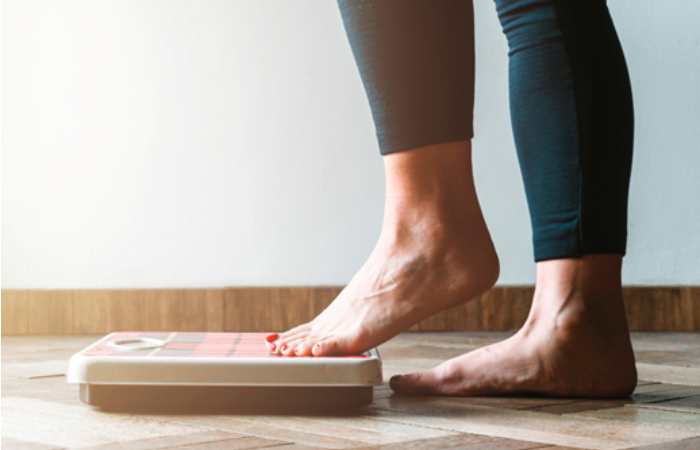Most people find out about their snoring the same way: a disgruntled partner, roommate or family member grumbles about it the next day at the breakfast table. If it makes you feel any better, it’s not particularly uncommon to be a rasping and snorting bedfellow. Experts estimate that snoring occurs in about 57 percent of men and 40 percent of women. These sounds range from barely audible rasps to extremely loud grumbling and grating that housemates can hear from another room.
Snoring is sometimes a sign of a more serious, even life-threatening problem. But in most cases, it’s usually harmless. Still, even mild rasping and snorting can be a source of frustration in many households. If your snoring is starting to strain your relationships, here are a few simple hacks that may help curb the problem.
Table of Contents
1. Change your sleeping position
Although sleeping on your back is beneficial for your neck and spine, it may not be the best sleeping position for those who snore. When you lie on your back to sleep, the tongue and soft palate collapse to the back of your throat, compressing your airway and making you more likely to have loud, rumbling snores that wake up your partner. For this reason, many sleep experts recommend the side sleeping position for people who snore.
Switching sleeping positions is often easier said than done, but there are products to make the transition go more smoothly. For instance, you can buy side sleeping backpacks and vibrating devices that encourage you to sleep on your side. Using a weighted blanket may also help promote side sleeping by grounding your body and facilitating a deeper sleep, making you less likely to roll onto your back during the night.
2. Maintain a healthy weight
If you’re overweight, consider getting on a diet and exercise plan. According to the Sleep Foundation, people who carry around extra weight are more likely to suffer from snoring and sleep apnea due to having excess fat around the neck. This fat, known as pharyngeal fat, may block the upper airway during sleep, making snoring much more likely.
You don’t have to drop an extreme amount of weight to see an improvement in your snoring. Shedding as little as five to 10 pounds could reduce, if not totally eliminate, your loud snorts and rasps during the night. For fast and effective weight loss, try pairing a calorie-conscious eating plan, such as the Flexitarian Diet, with a high-intensity interval training (HIIT) program.

3. Skip the nightcap
Drinking alcohol too close to bedtime isn’t good for anyone’s sleep, but it’s especially a bad idea if you’re prone to snoring. For starters, it can have a significant impact on breathing during sleep. Alcohol relaxes the airways and makes the tissues within your mouth swell up a bit, which may block the upper airway and make you more likely to snore.
Additionally, drinking too close to bedtime can cause sleep disruptions. The resulting lack of sleep can further relax the throat, upping your chances of snoring loudly and obnoxiously.
4. Practice good sleep hygiene
When you fall asleep, your jaw, tongue and throat all relax, narrowing your throat’s airway and causing you to snore. This muscle relaxation is most pronounced during deep sleep — a sleep stage marked by slower brain waves and difficulty waking up. Deep sleep is associated with a slew of physical and mental benefits, but not getting enough sleep can make your body want to spend more time in deep sleep. As a result, your snoring can be worse.
To hit the sweet spot for deep sleep, make sure you’re practicing good sleep hygiene and getting the recommended hours of sleep according to your age. Here are a few tips to follow:
-
- Stick to a regular bedtime and wake-up time. Following the same routine each night will help reinforce your circadian rhythms, making it easier to get the high-quality sleep your body craves.
- Keep your bedroom cool, quiet and dark. Turn down the thermostat before you go to bed. Drown out noise with a white noise machine. Block out melatonin-suppressing light with an eye mask (bonus points if it’s a weighted eye mask).
- Restrict in-bed activity. To reinforce the association between bed and sleep, avoid stimulating activities while you’re in bed. These include working, playing on your phone or watching television.

5. Use a mouthguard
Many of us have had to wear mouthguards while playing contact sports or at night to reduce the effects of teeth grinding (aka, bruxism). But did you know they can also help with snoring? Indeed, it’s not uncommon for physicians, dentists and sleep specialists to prescribe custom mandibular advancement devices, or MADs, to their patients. These oral tools work by advancing the jaw and tongue forward, thus maximizing airflow through the upper airway and reducing air resistance that can lead to snoring.
The best MADs are custom-made and often require a dentist or specialist to take a custom mold of your teeth for proper fitting. But if you want to cut down on costs, you can also find anti-snoring mouthguards at your local pharmacy or online.
6. Tape your mouth
Do you tend to sleep with your mouth open? If so, it may be contributing to your snoring problem. Mouth breathing circumvents the passage of air through the nasal mucosa, making regular breathing difficult and potentially worsening your snoring. Fortunately, there may be a simple solution: mouth-taping. This simple hack involves wearing a small piece of tape over the mouth at nighttime to encourage the user to breathe through the nasal passages. It may sound strange, but there is some evidence to suggest that mouth-taping may be an effective treatment for snoring. It’s worth a shot!
7. Try nasal strips
Stuffed nasal passages may be one of the sneakier causes of snoring. When your nasal passages become blocked, it forces you to breathe air through your mouth. This fast-moving air is more likely to make a sound as it squeezes through your airways.
Fortunately, the fix could be as simple as wearing nasal dilating strips to bed. These flexible, adhesive bandages work by opening your nasal passages to help you breathe more easily, reducing snoring and your blocked nose.
When to See a Doctor
As mentioned earlier, most cases of snoring are completely harmless. But if your snoring is particularly bad and accompanied by additional risk factors, like high blood pressure and obesity, you may want to check in with your doctor. It could be a sign of sleep apnea — a serious disorder linked closely to several life-threatening conditions.
